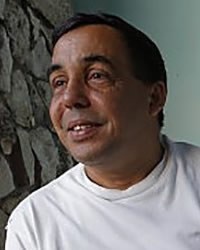The name "Cuba" can be traced back to the indigenous Taíno, the first people to live on the island. It means “Where fertile lands abound.” In 1492, Christopher Columbus landed in Cuba and claimed the land for Spain. The first Spanish settlement on Cuba was Baracoa (later to be Cuba's Capital, Havana), which was founded by Diego Velázquez in 1511. As Cuba became more settled by the Spanish, they developed industries of sugarcane, tobacco, and cattle. They took slaves from Africa to work in the fields.
Cuba first began fighting for its independence from Spain in 1868 during the Ten Years War. In 1898, the United States was fighting Spain, and the USS Maine was sunk in Havana Harbor. In the same year, the U.S. and Cuba defeated the Spanish at the Battle of San Juan Hill. The US gained control of Cuba with the Treaty of Paris and, in 1902, gave Cuba independence.
In 1952, Fulgencio Batista took control of Cuba and made himself dictator. The Cuban people soon rejected him. Rebel leader Fidel Castro organized a revolution to overthrow Batista, and in 1959, he became an unchallenged dictator. He declared Cuba a communist country and allied Cuba with the Soviet Union. The United States unsuccessfully tried to overthrow Castro through the Bay of Pigs invasion. The Soviet Union tried to establish a nuclear missile base in Cuba, causing the Cuban Missile Crisis, which nearly caused a nuclear war.
When the Soviet Union collapsed in 1991, Cuba lost an important source of support. Castro remained in power until 2008, when his brother Raúl became president. Raúl made some changes. In April 2018, Raúl Castro stepped down and was replaced by Miguel Díaz-Canel Bermúdez. Since then, Cuba has been experiencing economic and social decline. Many no longer want to live under a communist controlled government. From 2023 to 2025, almost three million Cubans left the country. The Cuban diaspora is in 12 countries, including Spain, their mother country.
Many Cubans in Spain prefer to retire in the Canary Islands, located near Spain.
The Cuban people have a unique blend of European, African, and Caribbean influences in their culture. This is evident in their music, dances, cuisine, dress, and unity. They are, by nature, hard workers and strive to do their best at what they do. Family and community play a central role in their lives, providing support and stability.
The spiritual beliefs of the Cuban people are deeply rooted in their history. During the pre-colonial period, the Taino people worshiped multiple gods, practiced ancestral worship, and conducted various rituals in worship. With the Spanish invasion dating back to the late 1500s, the Catholic Church was the predominant religious affiliation of the people. Protestantism began in the 18th century and was accepted by many Cubans.
When the communist party took over Cuba in 1959, they immediately placed tight restrictions on all religious groups, deported many Catholic priests, and closed all religious schools. Only by 1990 were some of these restrictions removed. The Cult of Santeria, which is a combination of West Africa's Yoruba spiritualism, traditional Caribbean practices, and Catholicism, has unfortunately drawn a larger number of Cubans, especially the youth.
All churches in Cuba must be approved by the government and be members of the Cuban Council of Churches (CCC). Those that do not register with the CCC are unable to print Bibles. They cannot repair or build structures. Unfortunately, Christians attending churches in Cuba are constantly aware that CCC spies may be present during their worship. Regardless of all this, many Cubans are not intimidated and have sought ways through prayer to reach out to people with God's word. A major need for the Cuban people is access to Bibles and biblical teaching. The Perspectives class is helping Cubans to become world Christians and to take Christ to the nations.
The need for a stable and caring government is a huge need for the Cubans. They have suffered through many decades of brutal regimes that have bled them spiritually and economically.
Pray that the Cuban people will experience the security, stability, and peace they need in their new homes.
Pray for thousands of Cubans in Spain to join the effort to take Christ to every nation.
Pray for the Holy Spirit to direct outreach to Cubans and draw thousands into God's Kingdom.
Pray that Cuban Christians in Spain will receive Bible training and take the Perspectives class.
Scripture Prayers for the Cuban in Spain.
https://www.sciencedirect.com/science/article/pii/S0890406522001013
https://www.thecubanhandshake.org/cubans-living-in-spain-reaffirm-solidarity-with-their-homeland/
| Profile Source: Joshua Project |











